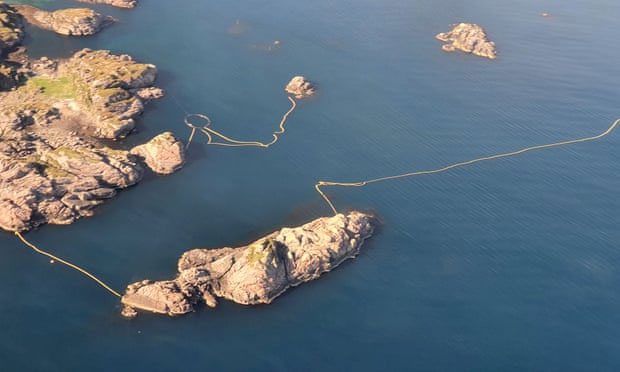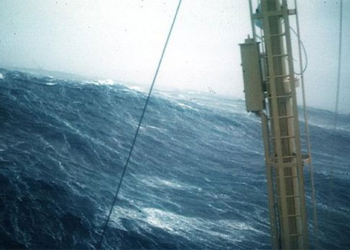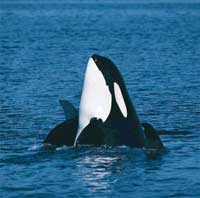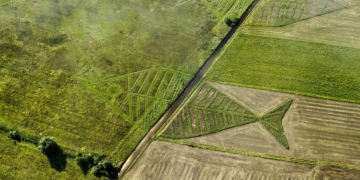Scientists have condemned the experiment as “completely unacceptable” because it could cause stress and injury, potentially even death, to whales during the testing process.
The plan for capturing and conducting a 6-hour sound test on minke whales is underway in Norway despite opposition from more than 50 scientists and wildlife experts, the Guardian reported on June 8.
A petition calling for the cessation of this “cruel” plan has garnered over 59,000 signatures.
In a letter to Norwegian Prime Minister Erna Solberg, experts from the Whale and Dolphin Conservation (WDC) urged the cancellation of the tests on the grounds that they are “completely unacceptable from a conservation, scientific, and animal welfare perspective.”
Moreover, they stated that this research “does not contribute anything useful to science” as it takes place in an unnatural setting, raising concerns about potential risks to the safety of the animals and the researchers involved.
“It is highly likely that the whales will panic when they are trapped. They may struggle to escape the enclosure, leading to serious injuries,” warned Dr. Siri Martinsen, a veterinarian with Noah, Norway’s largest animal welfare NGO.

Aerial images show nets set up on the sea surface to “trap” the pod of whales. (Photo: Guardian).
Not only could this harm the whales, but Susan Millward, director of marine programs at the Animal Welfare Institute, noted that if the whales react with extreme force, it could pose dangers to the researchers.
“The reaction of the whales cannot be predicted, so we believe that those involved in the research, especially those underwater, will be at risk of serious injury,” she said.
Additionally, emergency sedatives may be used if the whales react excessively. However, Vanessa Williams-Gray, policy director at WDC, emphasized that there is still too little data to demonstrate the safety of the drugs for whales and dolphins.
“Currently, there is only evidence indicating that the use of sedatives could threaten the lives of these species,” she stressed.
Experts also highlighted the risk that whales could die from stress or exhaustion during the capture and testing process.
Nevertheless, the plan has been approved by the Norwegian Food Safety Authority. Dozens of minke whales will be captured in the strait off the island of Vestvågøy in the Lofoten region of Northern Norway. This is where this species migrates annually to feed in the northern Barents Sea.
After capture, the whales will be confined between two rafts for a maximum of 6 hours. Electrodes will be attached under their skin to study how their brains respond to underwater noise frequencies. At the end of the experiment, they will be tagged with satellite devices and released back into the sea.
The experiment was scheduled to take place from May 15 to June 22 but was postponed due to bad weather. After swimming into the enclosure area, these whales will be transferred to a salmon farming area to begin the experiment.
Researchers from the Norwegian Defence Research Establishment aim to test the whales’ tolerance to noise levels, thereby enhancing understanding of how this species is affected by naval sonar and noise from oil and gas exploration activities.





















































